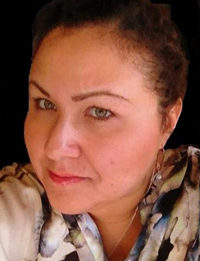
What I have learned about living with and overcoming bipolar disorder can be summed up in three words: faith, hope, and knowledge. Faith cements your hope that you will overcome, and knowledge informs on how to live well, using better judgment in managing what can be a devastating and life-altering disease.
After a diagnosis of bipolar disorder in 2001, which came at the heels of a harrowing post-partum season of my life, I momentarily lost more than just my sanity and ability to cope. I lost the solid footing under me of memories and experiences of my life as I was swept up in a whirlwind of retrospective questioning. As a spiritual person, I had revisited every “mystical” encounter and questioned it. As a new mom, I revisited every decision I had made and wondered if I knew what I was doing. The questions continued: Was my marriage based on manic impulsivity? Was this the reason why I could never finish anything I started? Or spent uncontrollably? Or was increasingly anxious and paranoid of people and the world? Finally, was I really just the sum total of chemicals gone awry in my brain?
I was left to figure myself out, believing that I was stricken with something so dark and awful that I could never find anyone with whom I could relate. I didn’t have cancer. I didn’t have high blood pressure or heart disease or diabetes. I was—as I believed—weaker than the world in mind, body, and soul, and I would never measure up. My highs and lows were devastating. The depressions were abysmal beyond description, and I consider myself someone who finds it pretty easy to describe things. The suicidal ideations were always by my side. But all hope was not lost.
Reluctantly, I began taking medication and attending individual and group therapy that very same year. I quickly (and gratefully) learned that I didn’t need to hang up my faith in God, life, and health, because I was in good company. Interestingly, before my diagnosis, I remember always relating all too well to writers and poets, the likes of Emily Dickenson, Charles Spurgeon, Samuel Johnson, Robert Frost, William Blake, and even being disturbed by but understanding Virginia Woolf and Sylvia Plath’s plight. I found I understood them somehow. Now I know why.
And now I have actually met and dined and spent quality time throughout the years with many brilliant but burdened minds who have shown me that I am not alone and that I am actually in the best company. Fast forwarding to today, I started college in 1993, the same year of my first actual “break” or manic episode, and finally graduated with a Bachelor of Science in 2005. The road in between was not always easy, but was definitely worth it. I am now entering my second semester of graduate school. To learn more about the great minds that baffle and inspire me, I am working towards a Master of Arts Degree in English Literature and Creative Writing with a concentration in poetry.
My journey has been a long one and it continues. I have found health through a plethora of resources including my faith, medication, therapy, the support of my friends and family, my son’s smile, and informing myself incessantly on everything from research to the experiences of contemporary published authors and celebrities who fight along with me. Know that you don’t have to lose your faith, but you just have to grow its boundaries. See that hope is everything even in the most unsuspecting things: creation, the miracle of life itself, artistry, music—the list goes on. And educate yourself on what is happening in your brain and your emotions. That is more than half the battle! There’s always hope. There’s always a reason to look in the mirror and say, “I’m not just a survivor. I’m an overcomer.” There really is nothing you can’t still endeavor to do.
Listen to the mustn’ts, child. Listen to the don’ts. Listen to the shouldn’ts, the impossibles, the won’ts. Listen to the never haves, then listen close to me—Anything can happen, child, anything can be.
–Shel Silverstein, Poet


